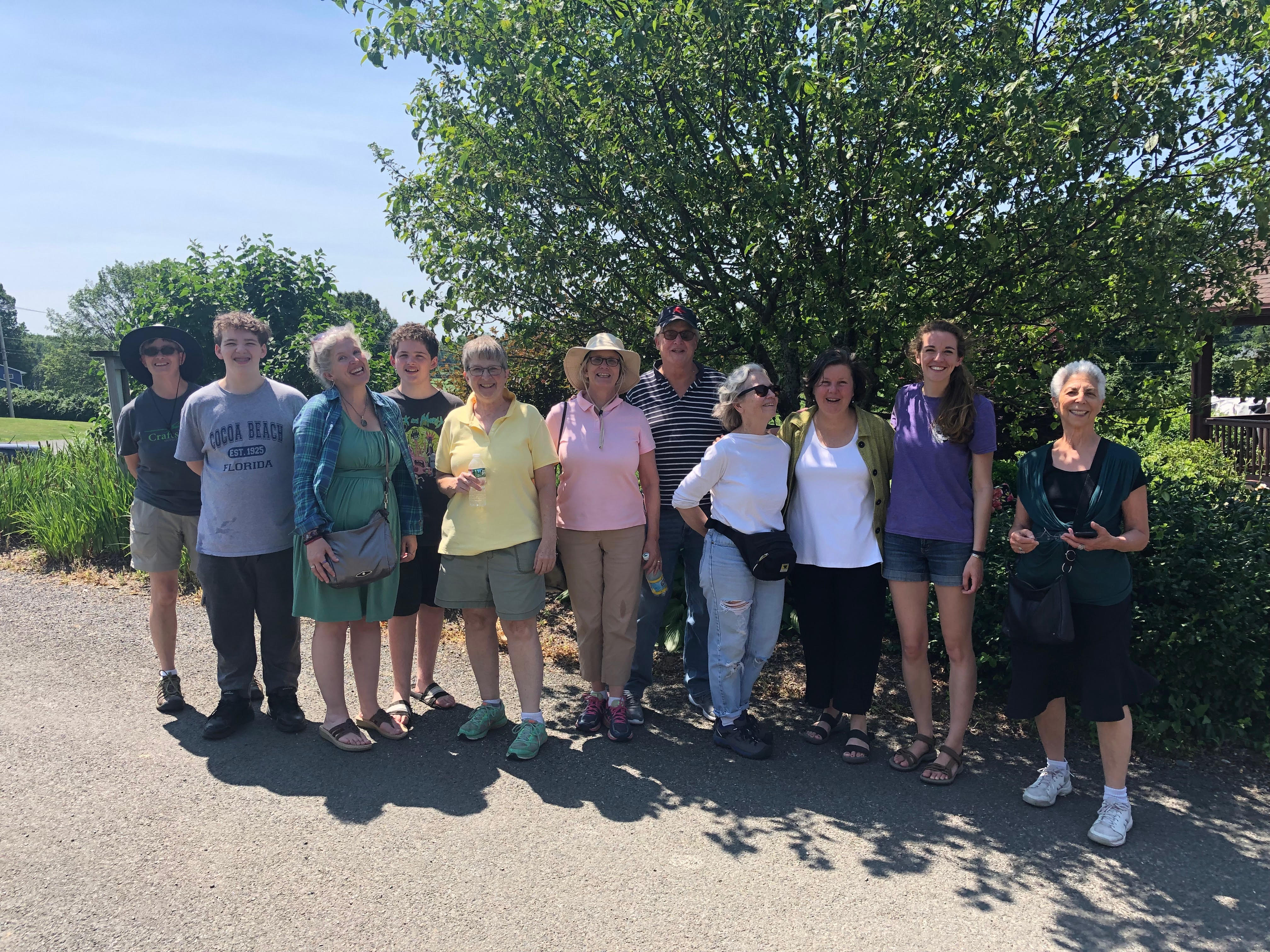By Jo Comerford Posted June 24, 2019 In The People’s Blog
JUNE IS DAIRY MONTH IN MASSACHUSETTS. THAT’S WHY I JOINED CONSTITUENTS AND DENISE BARSTOW FOR A TOUR OF HER FAMILY’S DIARY FARM IN HADLEY.
Denise is an 7th generation farmer. That means that her family has cared for the land they’ve farmed for over 210 years.
I met Denise and members of her family last summer during my campaign for State Senate.
Their ideas are baked into legislation I filed. And the urgency I feel around passing these bills comes from the commitment I feel to the Barstow family and to the more than 300 farms in the Hampshire, Franklin, Worcester district.
Here are SIX (of many) things to know about the Barstow Longview Farm.
Don’t miss checking out its great website for more information: https://www.barstowslongviewfarm.com/.
1. The Barstow farm is a member of the Cabot collective and milk from their cows is on store shelves within 48 hours.
2. The Barstow family grows the corn and hay for their cows, importing only cranberries from the Cape.
3. They use no-til farming because it has been proven to deliver better crops and be better for the environment. Here’s a fact sheet on a healthy soil bill I filed that could help deliver resources to support the Barstow’s farming: https://senatorjocomerford.org/wp-content/uploads/2019/05/s.438-healthy-soils-fact-sheet.pdf.
4. The family doesn’t own enough land to produce all the feed it needs, so it rents parcels of land to farm. Here’s a bill on smaller pieces of non-contiguous farm land which I filed to make sure it’s taxed at an agriculture rate rather than at a higher rate to help protect its status as farm land: https://senatorjocomerford.org/wp-content/uploads/2019/05/s.1613-noncontiguous-agricultural-land-fact-sheet.pdf.
5. The Barstow family protected its land via the APR program (selling the development rights) and income from that sale allowed the family to invest in technology to improve their dairy operation.
6. While the family makes 85 percent of its income from their dairy, they also run two micro-businesses to make ends meet and give back to the community: a store where they sell local produce and homemade goods and an anaerobic digester which takes waste from area food producers and turns it into energy to power 1,600 area homes.
